40 Dark Secrets Customers Don’t Know About Restaurants
People are known to be adventurous when it comes to food. Many of us love visiting our favorite fast-food chains regularly. Meanwhile, eating at high-class restaurants is a great way to discover different varieties of food. Then, of course, there are all the cultural varieties, from Vietnamese pho to Peruvian ceviche.
However, eating at restaurants is not always a safe option. Some restaurants always follow health standards, going above and beyond to ensure they deliver meals in a safe and hygienic way. On the flip side, there are plenty of restaurants that secretly just don’t bother. This is why, today, we’re exploring some of the darkest secrets of the restaurant industry.
1. Hollandaise Sauce
Hollandaise sauce is also known as Dutch sauce. It is made by mixing raw eggs (or lightly cooked eggs) with lemon, butter, and various seasonings. Tasty as it may be, raw eggs contain Salmonella, and the only way to kill the bacteria is with heat.
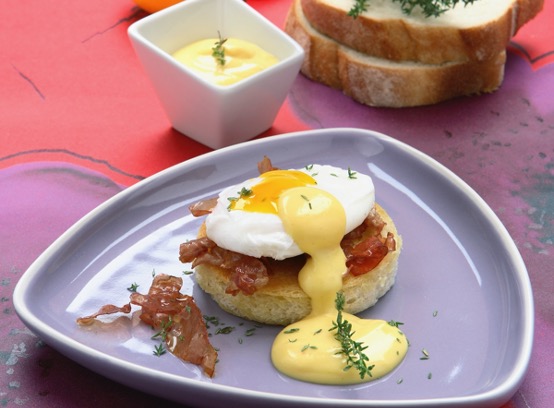
DeAgostini/Getty Images
The sauce seems to be tasty, but then we are not sure if it is safe to eat. Anthony Bourdain, a famous American Chef, said that “How about hollandaise sauce? Not for me. Bacteria love hollandaise. And nobody I know has ever made hollandaise to order.” Even chefs agree that it is dangerous to include this in your meal.
2. Bottled Ketchup With Other Bottles
Many restaurants combine ketchup bottles at the end of the night. Restaurant owners do this so there won’t be any waste. However, the more you think about it, the more unhygienic it sounds.
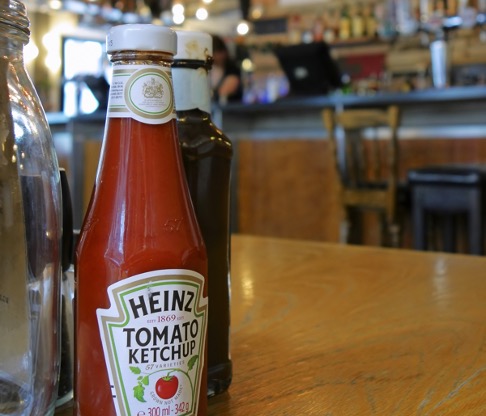
Loop Images/Universal Images Group via Getty Images
Whether this is common practice depends on where you live. Some may think that it’s fine as long as the bottles are properly sanitized and cleaned. However, every time the bottles are combined, that’s another opportunity for cross-contamination.
3. Overcooked Chicken Parmesan
You may be surprised that chicken parmesan is included in this list, but we have a valid complaint! Chefs know that this recipe is perfect if you ever want to conceal overcooked chicken. The dish consists of a breaded chicken cutlet, a lot of mozzarella cheese, and tomato sauce. Every element makes it easy to disguise overcooked meat.
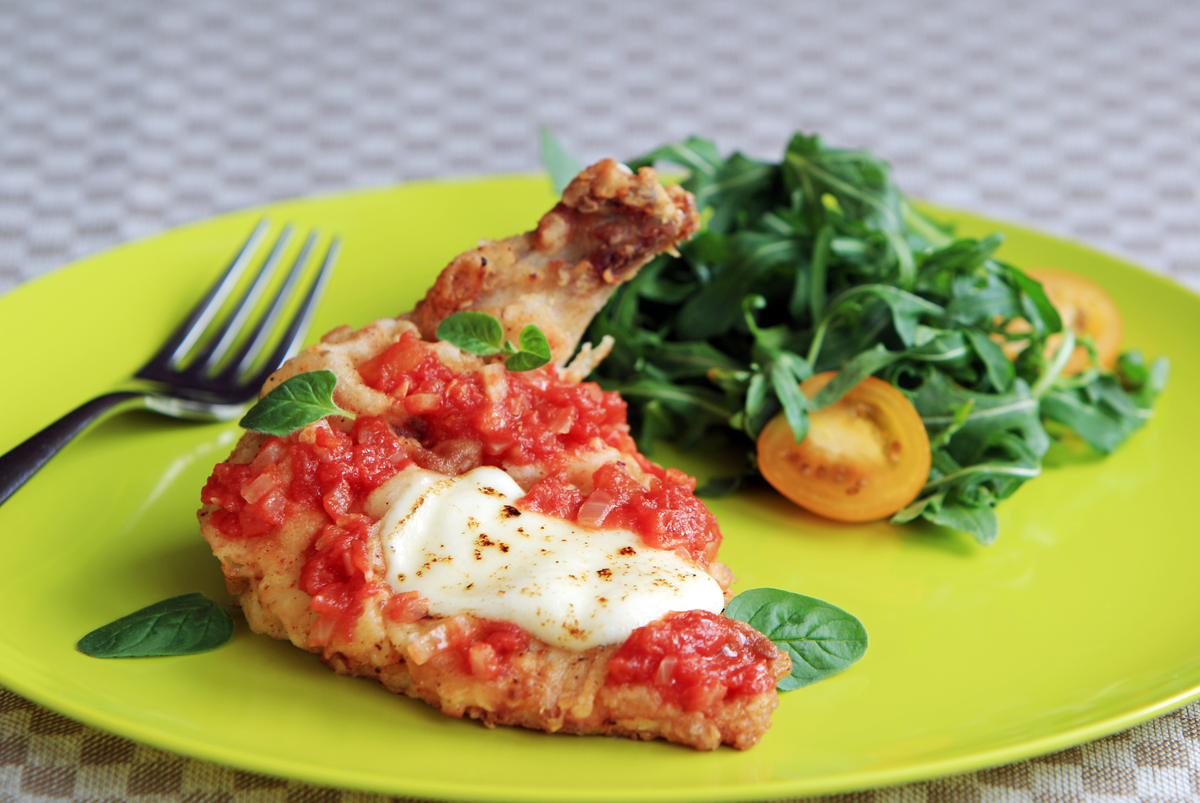
JONATHAN WONG/South China Morning Post via Getty Images
Chef Phil Pretty of the Long Beach Restaurant once said, “I would never, ever order chicken parmesan. It’s always frozen before being cooked and tastes like a gross version of chicken nuggets.” Comparing a professionally prepared dish to fried chicken nuggets? Yikes.
4. Tap Water Is Not as Safe as People Think
While tap water is deemed safe by the US Environmental Protection Agency, you can’t be so sure in every region of every state. According to scientists, tap water can still be filled with contaminants that are known to be harmful over time. While these contaminants won’t be harmful to consume occasionally, they can be detrimental if you’re getting dosed with them every day. Regular intake of tap water can lead to gastrointestinal illnesses.

Photofusion/Universal Images Group via Getty Images
If you are afraid that your health might be at risk, it’s best to opt for bottled water in restaurants. Better yet, just buy a water purifier for your home and bring your own water with you. You can save your health while saving the environment by cutting down on plastic waste from water bottles.
5. The Special Soup Is Yesterday’s Leftovers
The soup special that you really want to try in a restaurant might be yesterday’s leftovers. This is indeed a smart way to conceal any leftovers from the previous day. If you think this is an urban legend, Reddit users are here to prove you wrong.
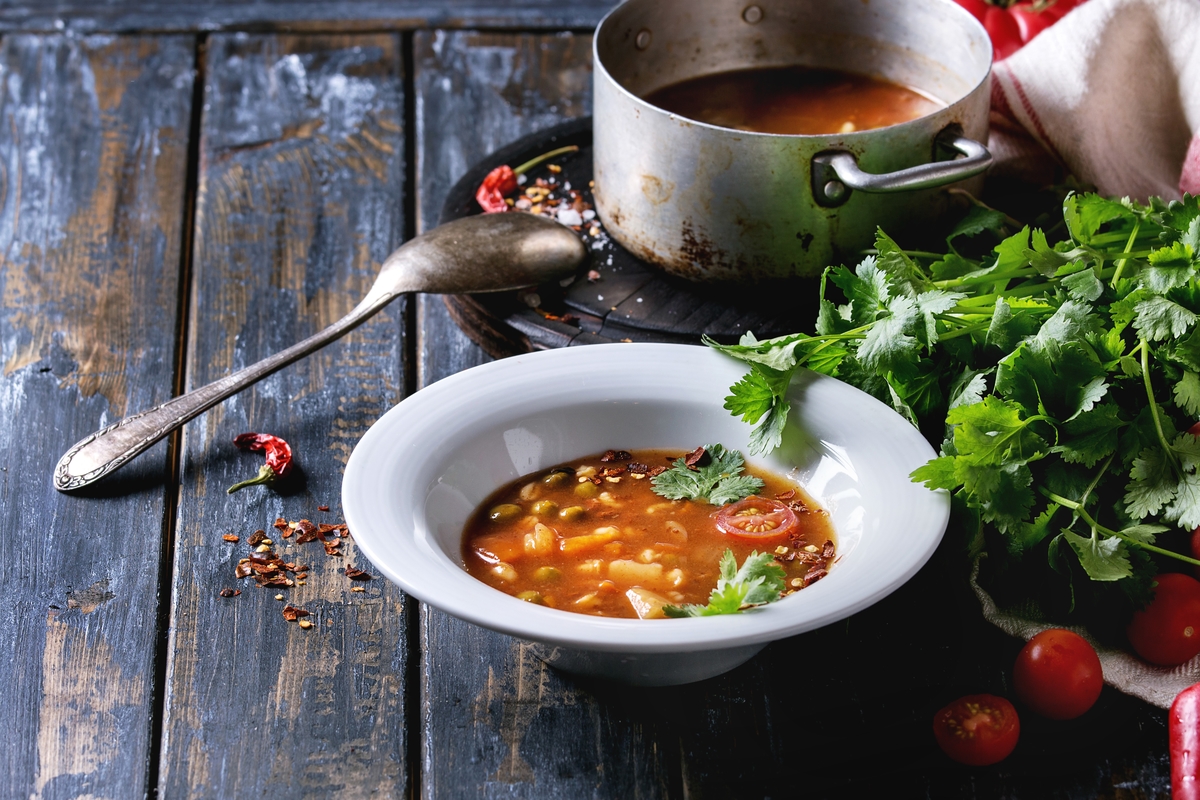
Natasha Breen/REDA&CO/Universal Images Group via Getty Images
On Reddit, anonymous users freely express their experiences and ideas about the world. Many restaurant workers agreed when one user explained, “soup of the day – it’s just yesterday’s leftovers.” It’s scary to realize how much trust we put in the chef when we visit a restaurant. Next time, we might pass on the soup of the day!
6. Crunchy Raw Sprouts? No Thanks!
There have been studies regarding raw sprouts containing bacterias like Salmonella, Listeria, and E. Coli if consumed raw or half-cooked. While we understand how fun it is to have a crunchy side dish, think thoroughly about the effects of eating raw sprouts.
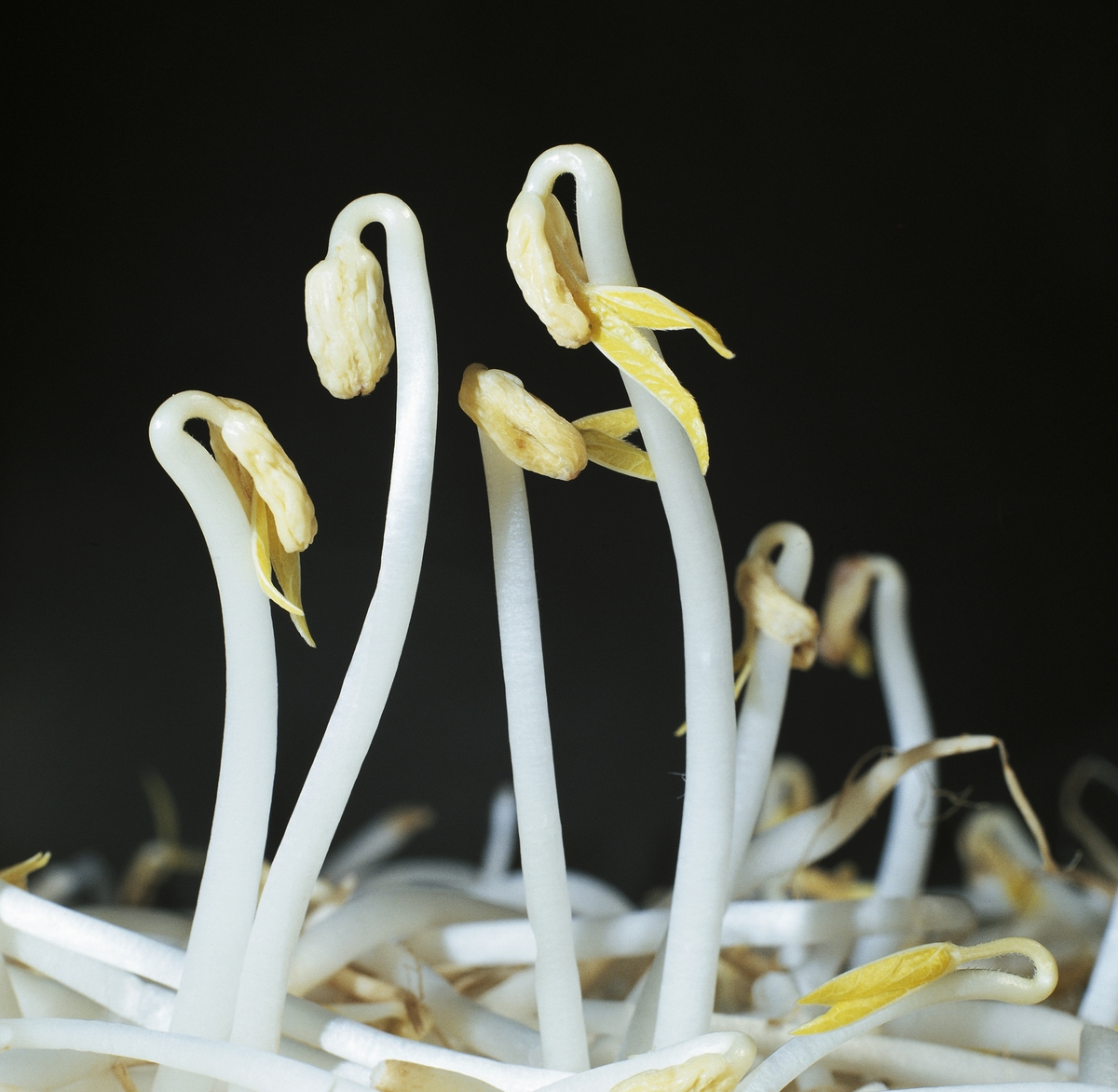
DeAgostini/Getty Images
Children, pregnant women, and elderly people are especially at risk if they eat sprouts raw, but cooking is all it takes to kill the bacteria. If you are craving sprouts, it’s best to opt for dishes in which these crunchy treats are cooked thoroughly.
7. Buffet Temperatures
Have you ever wondered what it’s like in the buffet’s kitchen? We imagine a massive, fast-paced, demanding environment, especially in large all-you-can-eat restaurants. Since the chaos behind the scenes is an open secret, recent regulations have pushed for a safer environment for the food.
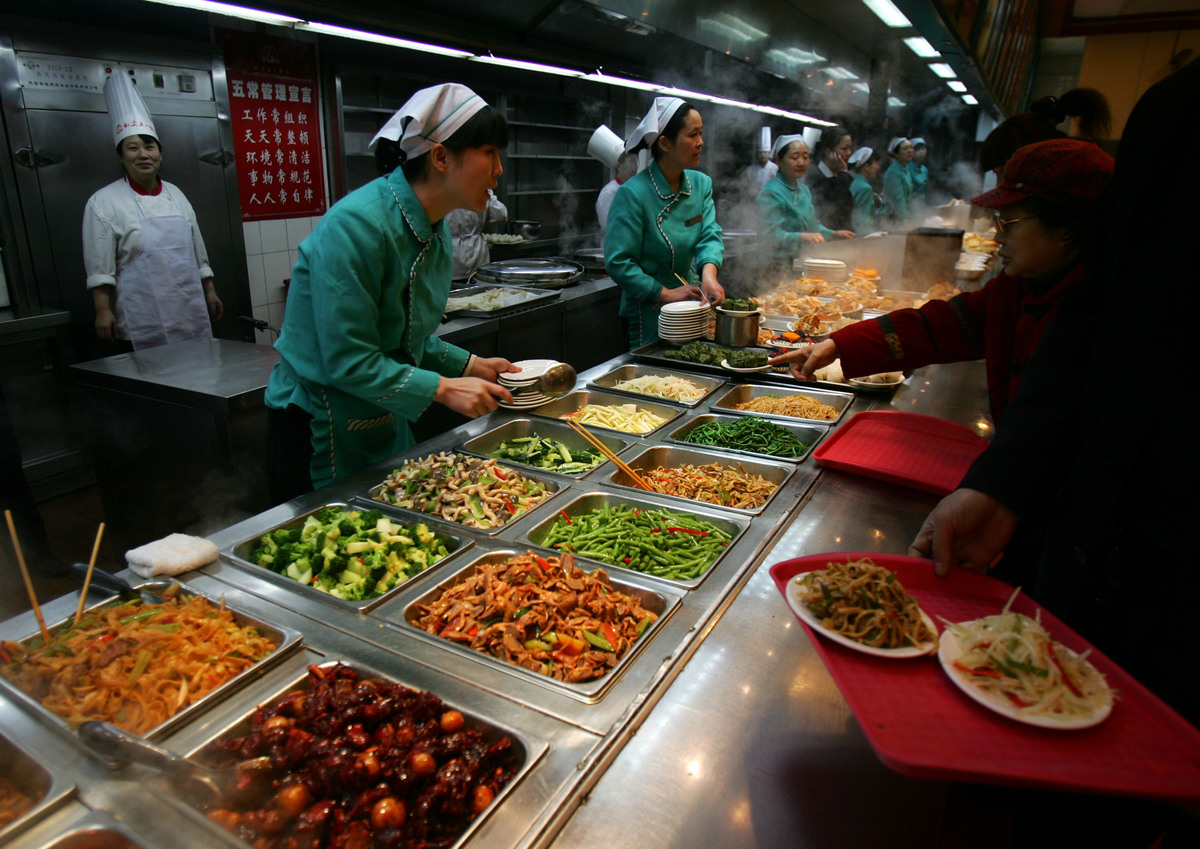
China Photos/Getty Images
Hot foods should be kept hot enough to avoid bacteria build-up. Likewise, cold foods should be kept cold enough to prevent the same. When eating at a buffet restaurant, it’s also important to make sure your utensils are clean and sanitized.
8. House Salad
House salad is maybe the least scary item on this list, as the only concern with it is that restaurants generally charge a lot for a very cheap and simple salad. If you are going to order something for 20 dollars, make sure that it is worth the expense.
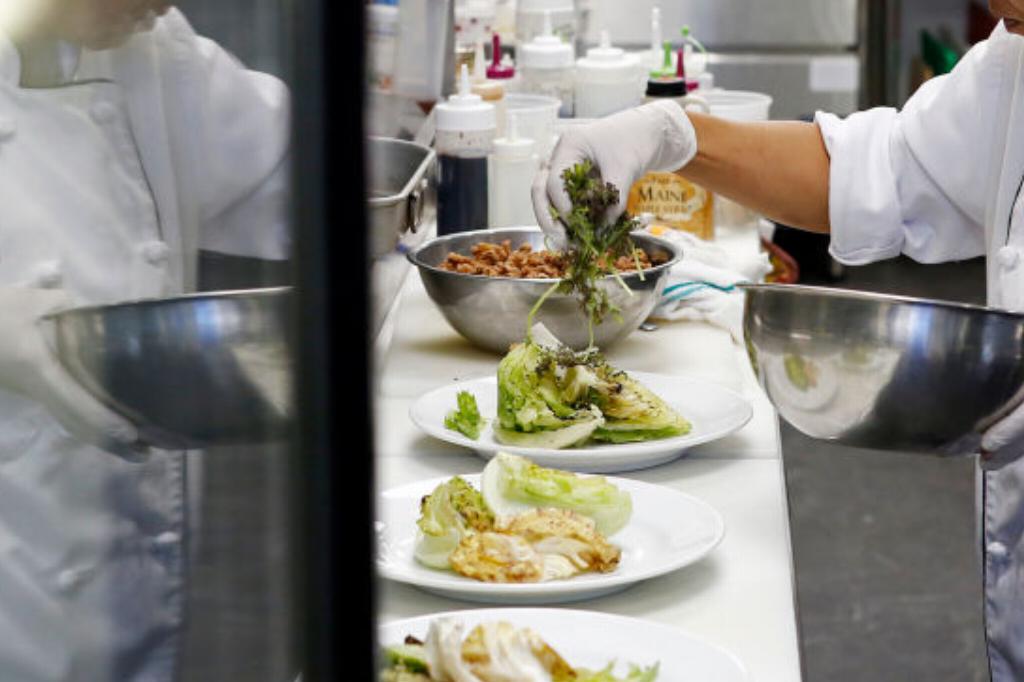
Ben McCanna/Portland Portland Press Herald via Getty Images
According to Chef Kayson Chong, a famous chef who is based in Los Angeles, “I prefer to have something special that a chef created with seasonal products and interesting combinations.” We can’t argue with that!
9. Wedge Salads
While house salads may be expensively ordinary, wedge salads take this concept to the extreme. Wedge salads are made of iceberg lettuce, usually topped with blue cheese dressing, crispy bacon, and cheese crumbles. Avocado, red onion, or tomato are optional ingredients.
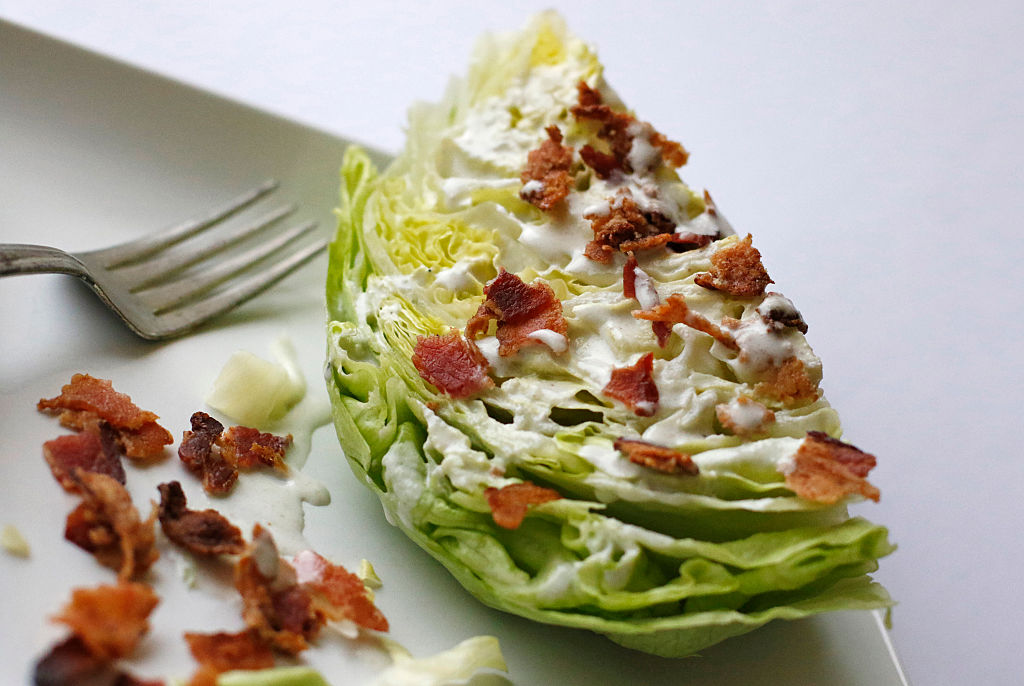
Jill Brady/Portland Portland Press Herald via Getty Images
While it seems to be a delicious and classy dish to order in a fancy restaurant, think again. You can make this in the comfort of your home and spend a lot less compared to what you’d pay in a restaurant.
10. Fresh-Squeezed Juice
Fresh-squeezed juice is something many of us crave on a hot, sunny summer day. Since it takes a lot of hard work to make juice at home, many people opt to pick up freshly-squeezed (or pressed) juices from restaurants. However, for restaurants, fresh-squeezed juice can be dangerous because any bacteria on the surface of the fruit can contaminate the juice.
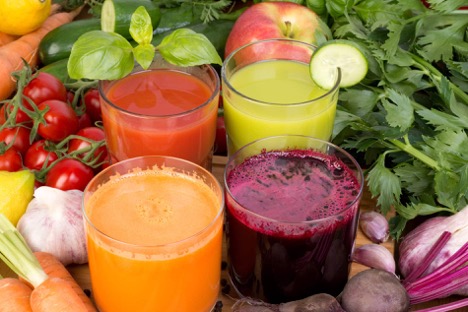
While it is fun to order delicious juices from restaurants, it’s just as enjoyable to make your own at home. If you don’t want to invest in a juicer, just make sure the place you purchase your juice from is clean. You can even ask if they wash the fruit before juicing it – just try to be tactful about it so you don’t offend anyone!
11. The Bread Basket Meets Many Dirty Hands
This basket comes into contact with many hands, and since it’s a basket, don’t rely on it getting cleaned regularly by the restaurant. It’s a home for bacteria due to how many hands pass it around.
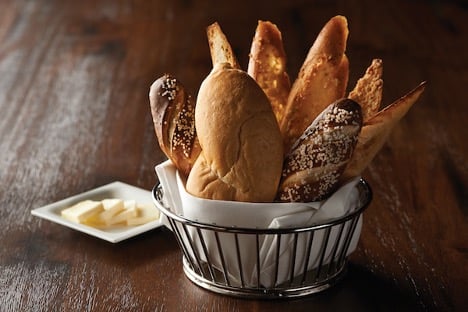
Bread baskets are usually the home for the bread on the table. However, more hands have touched this basket than you think. In addition to your waiter and the people at your table, that basket could have collected bacteria from many other diners since the last time it was washed.
12. Unpasteurized Cheeses
Pasteurization is a process in which foods are put through a heating process to prolong shelf life and kill pathogens. However, some types of cheeses – like brie, queso fresco, and camembert – skip this process, resulting in the susceptibility of these cheeses to developing harmful bacteria.
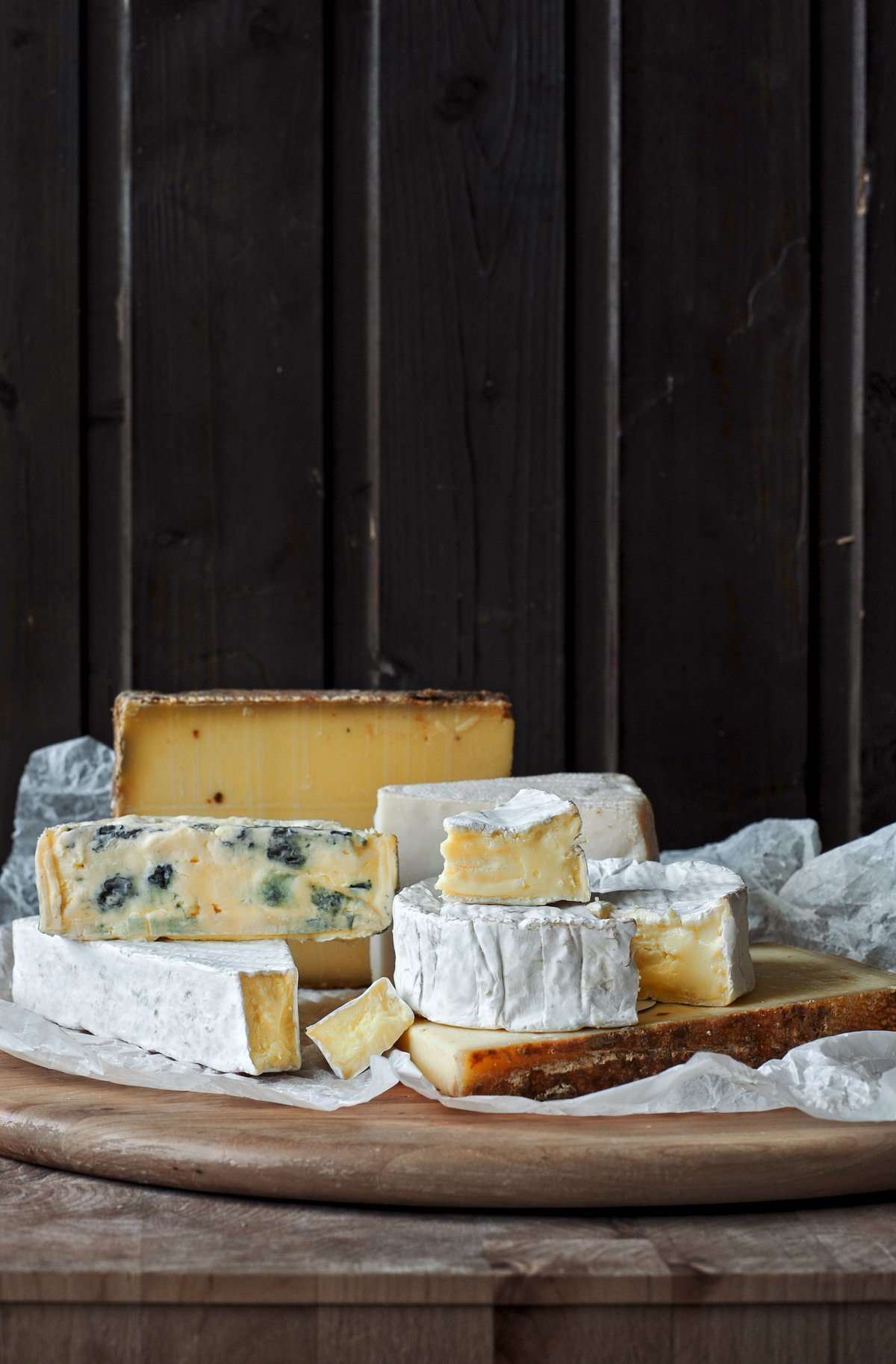
Getty Images
The CDC (Centers for Disease Control and Prevention) doesn’t endorse eating these types of cheeses unless they are labeled as having been made with pasteurized milk. This is because, according to their studies, cheeses made with raw milk are 50-160% more likely to have Listeria.
13. Is the To-Go Box Sure to Keep Food Fresh?
Temperature and time are the two important factors that must be considered to avoid food poisoning. The FDA has a law regarding food that’s been at room temperature. However, when we request a to-go box, this is usually at the point in the meal when the food has cooled to room temperature.

Artur Widak/NurPhoto via Getty Images
It is good to know that we can use doggy bags to avoid wasting food. However, this practice is not safe all the time. Just be aware that food quality doesn’t last long in these containers. Also, be sure to reheat the food again once you go home before placing it into your refrigerator. In this way, you can eliminate any bacteria that may have been sitting on your food.
14. The Infamously Expensive Kobe Beef
Kobe beef is one of the most expensive beef varieties. It is wagyu beef from the Tajima Strain of Japanese black cattle. The farmers who breed these animals have high standards when it comes to their treatment. This is part of why Kobe beef develops its signature flavor, tenderness, and fatty, well-marbled texture.
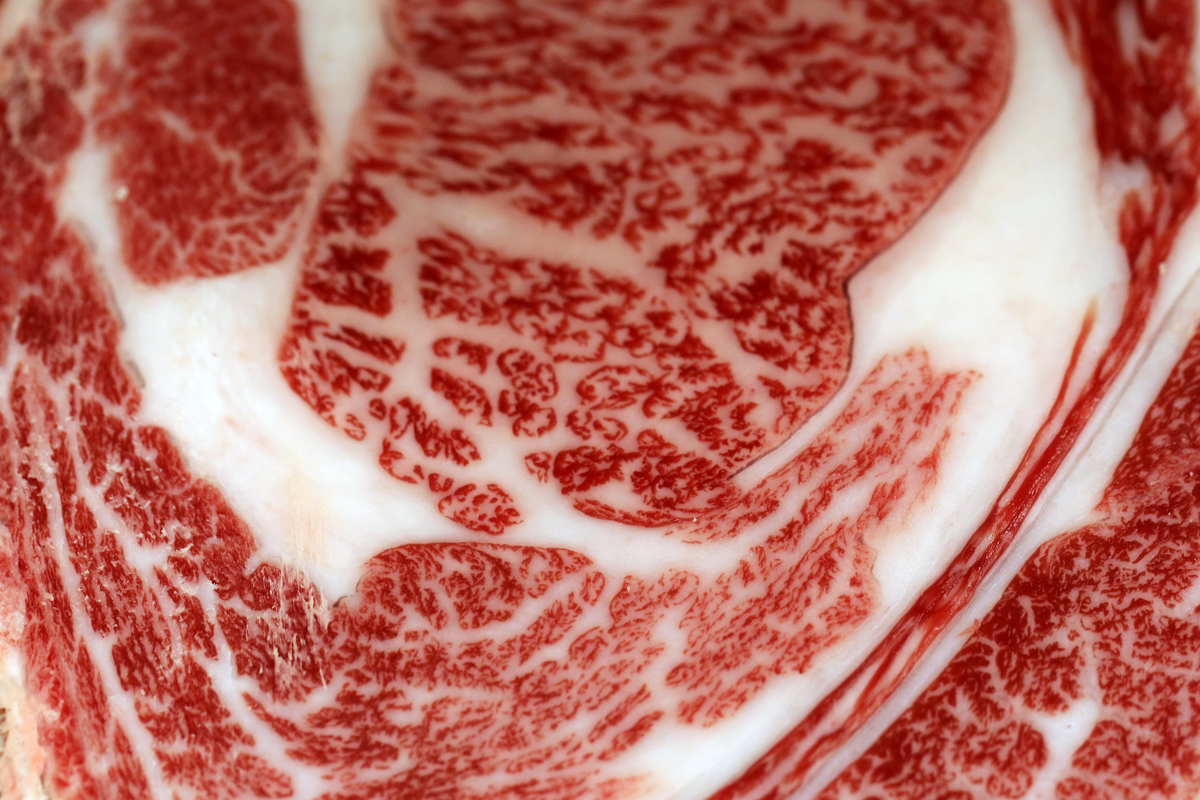
Buddhika Weerasinghe/Getty Images
Though it has high Japanese standards, not all of it is created equally due to some mislabeling. If you come across a low price Kobe beef, think twice. Certified Kobe beef only comes from Japan, so when you factor in the high farming standards, high-quality of the beef, plus the shipping costs, it should be expensive.
15. Sweet Tea
We certainly enjoy the sweetness of this tea, but did you know that sweet tea has more sugar than most soda varieties? Whatever type of sugar it may be, this places you at a greater risk for developing type 2 diabetes.
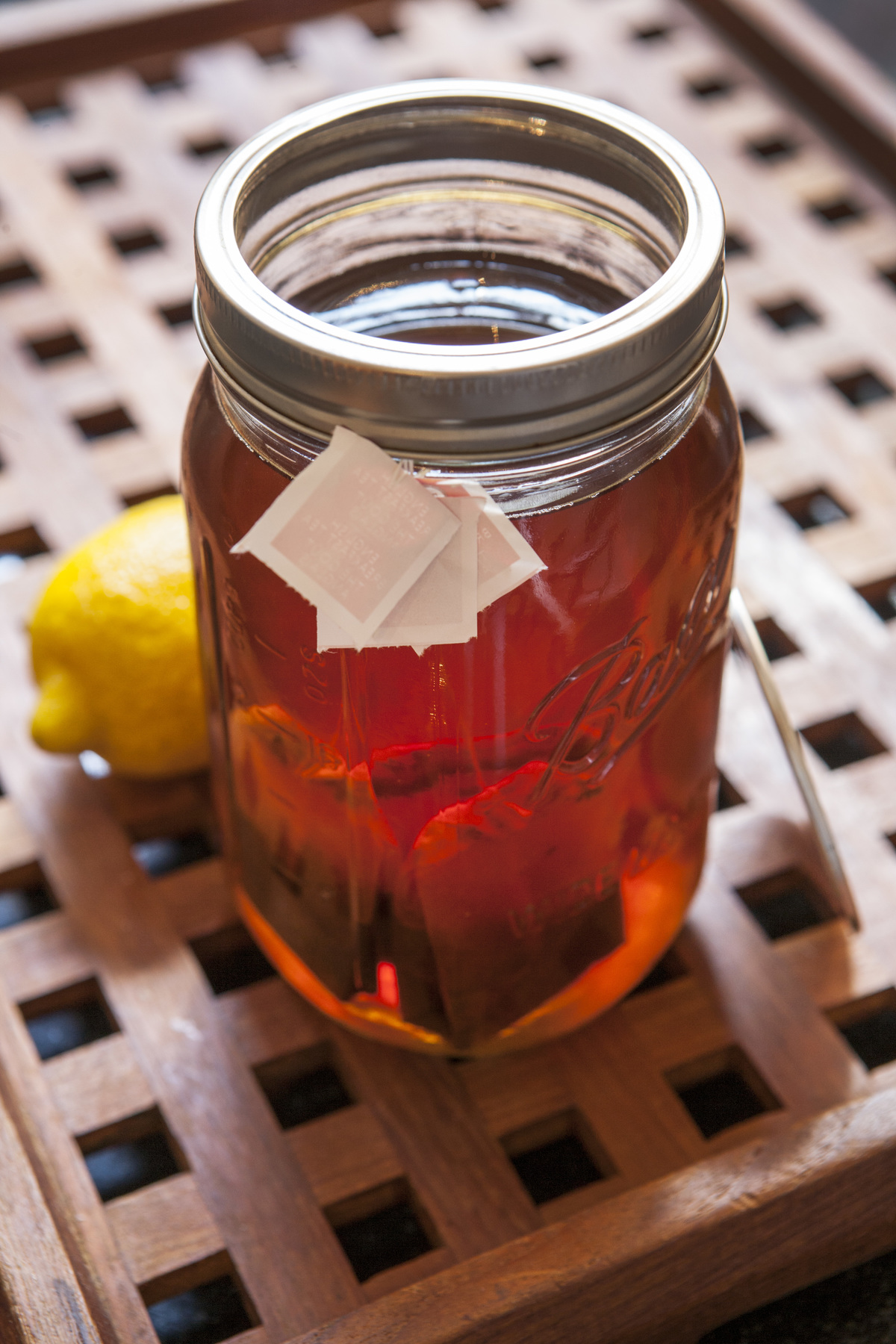
Education Images/Universal Images Group via Getty Images
Complications of diabetes are no joke. They include kidney failure, a weakened immune system, eye damage, cardiovascular disease, and more. In the restaurant, when you are ordering this, you don’t really know how much sugar is being added. So, if you love tea, it’s better to purchase your favorite variety and make it at home.
16. Today’s Special
Much like the “soup of the day” that we just learned about, those budget-friendly specials are often made with leftovers. People who work in restaurants know that the chef’s special usually consists of leftover meats, sauce, and even old vegetables. Some restaurants use this strategy to avoid waste.
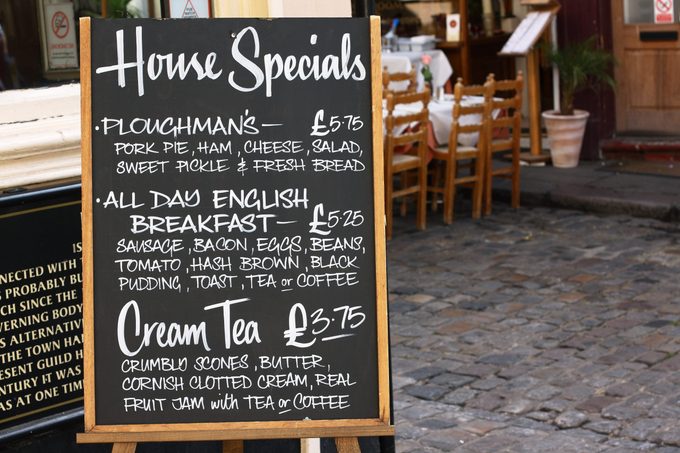
Though we support any efforts to avoid waste, it’s also important to note that you are more vulnerable to foodborne illness when you are eating past-their-prime foods. This is not to say that all restaurants use this strategy but, it is a common practice in the industry.
17. Medium-Rare Burgers Are a Health Risk
Most minced or ground meat is exposed to the air, which increases the chances of it coming in contact with harmful bacteria. Beef, chicken, or pork burger patties that are not cooked properly are also susceptible to salmonella.
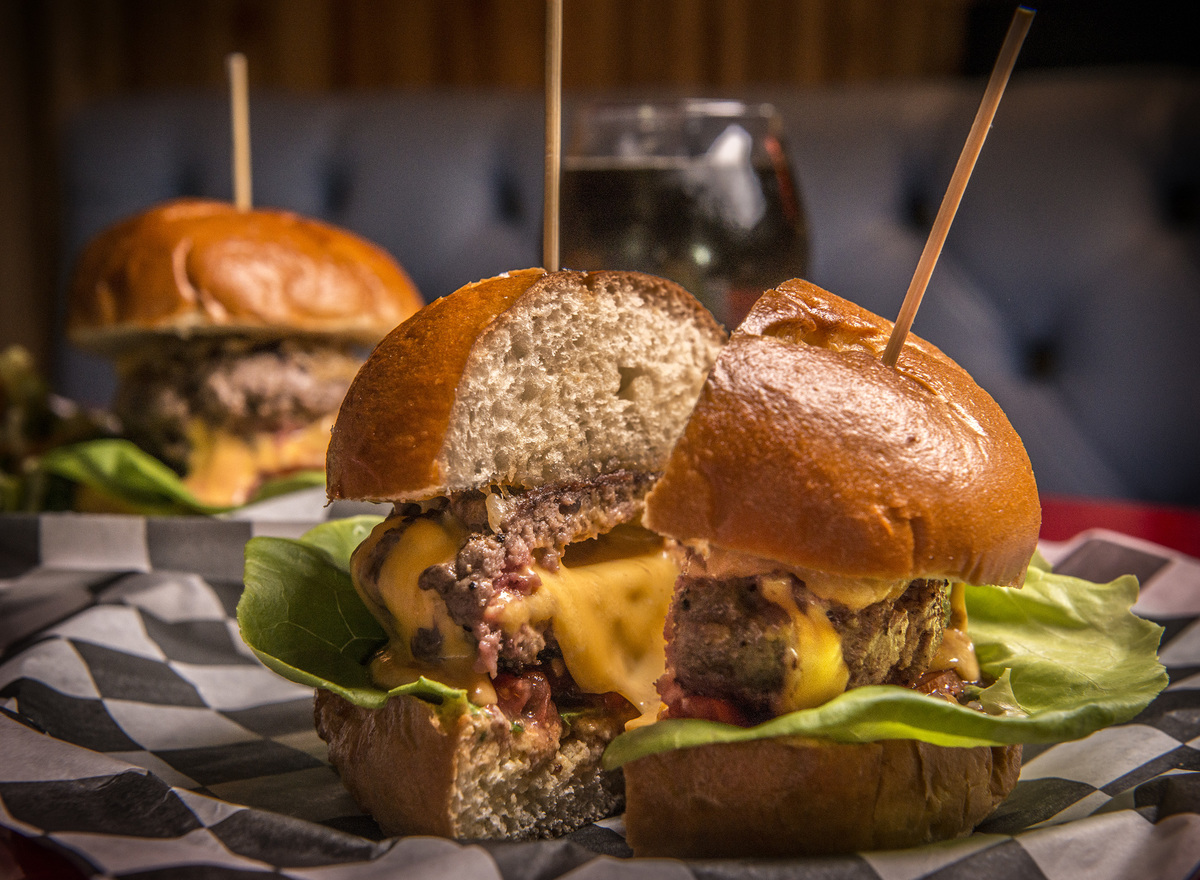
Bill O’Leary/The Washington Post via Getty Images
The United States Department of Agriculture advises heating ground beef or pork to a minimum temperature of 160 Fahrenheit to kill the bacteria effectively. When you’re getting ready to order your next burger, be sure to ask the waiter for medium, not medium-rare.
18. Vegetarian Dishes Might Not Be Fully Vegetarian
There was a survey conducted by the Food Network that asked chefs if they were using only vegetables for vegetarian dishes. Astonishingly, 15% of the chefs surveyed admitted that some vegetarian dishes have at least a small amount of animal products in them.
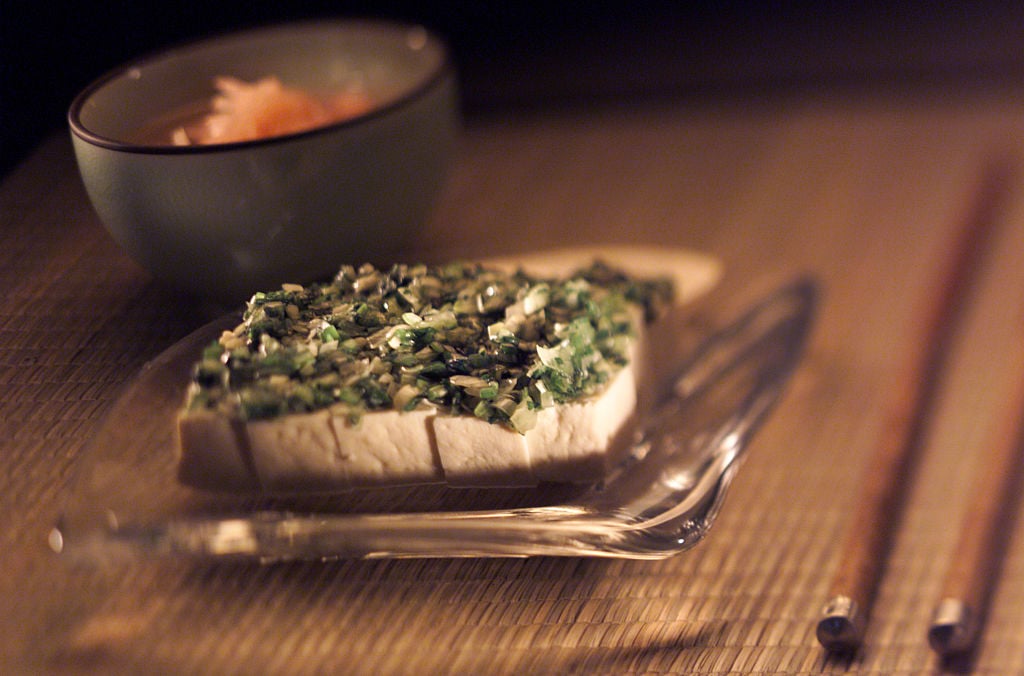
Anacleto Rapping/Los Angeles Times via Getty Images
This may be a shocking truth for vegetarians, but it’s important to know. The good news is, not all restaurants are like this. For you to be sure the dish served is authentic, stick to your trusted places that specialize in these kinds of dishes. Other ways include asking what ingredients are in the dish and how it is prepared.
19. Never Order Fish on Mondays
Fish markets are generally not open on weekends, so any fish you order on a Monday has likely been sitting in a container for at least a couple of days. The New York Times bestselling book Kitchen Confidential by Anthony Bourdain discussed this sensitive topic.
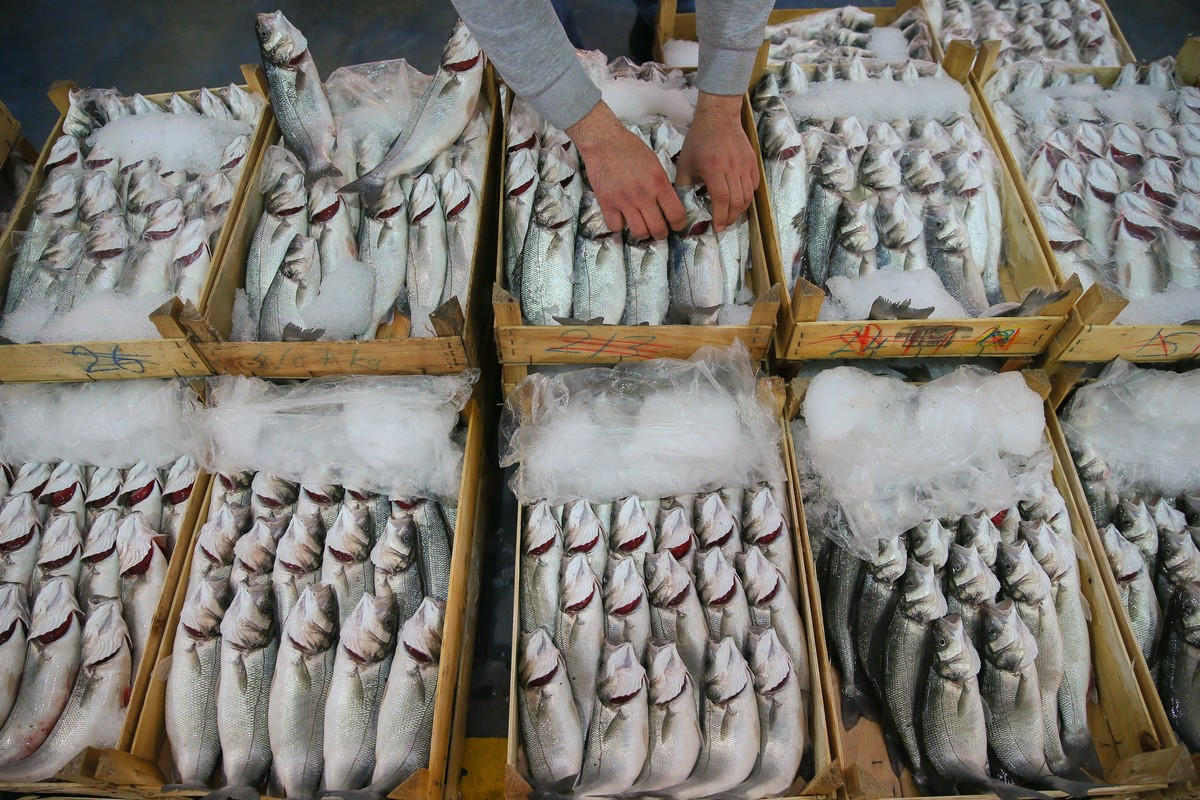
Emin Menguarslan/Anadolu Agency/Getty Images
In Bourdain’s words, “I never order fish on Monday, unless I’m eating at a four-star restaurant where I know they are buying their fish directly from the source. I know how old most seafood is on Monday – about four to five days old!”
20. Raw Oysters Have Unchecked Diseases
Oysters are the favorite of a lot of people. However, few understand that Vibrio vulnificus bacteria live in the coastal waters where oysters settle. Because oysters feed by filtering water, bacteria can accumulate in their tissues. If eaten raw or undercooked, viruses and bacteria in the oyster can cause illnesses.
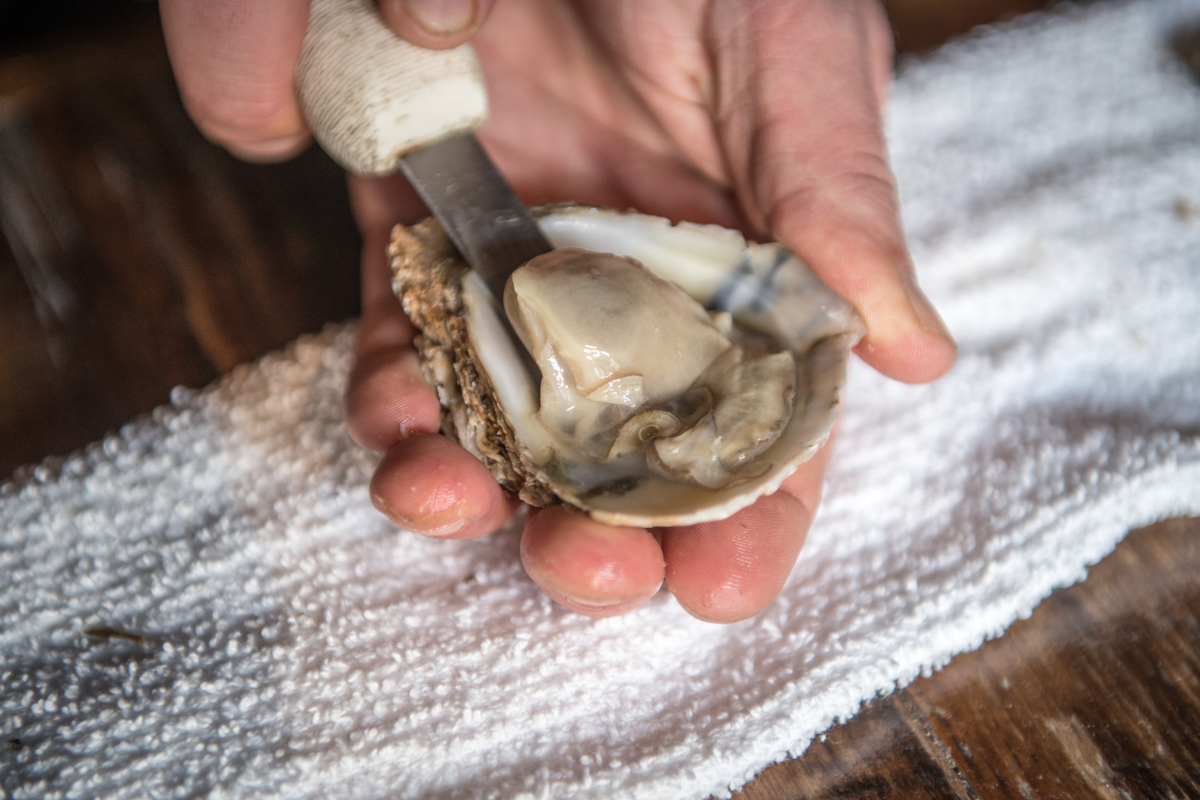
Edwin Remsberg/VW PICS/UIG via Getty Image
This fact is supported by Dr. Duc Vugia, head of the Infectious Disease Branch at the California Department of Public Health. She explained, “Eating raw oysters is dangerous for certain groups of people because some raw oysters contain bacteria or viruses that can cause disease. A bacterium called Vibrio vulnificus that is in some oysters can cause severe illness and death in people with certain underlying medical conditions.”
21. Dirty Lavatories = Dirty Restaurant
If a restaurant’s bathroom is dirty, you can guarantee it has a dirty kitchen. Even if the employees use a separate bathroom, it’s safe to say that its standard probably doesn’t exceed the standard of the bathroom the establishment offers to customers.

MUJAHID SAFODIEN/AFP/Getty Images
This dark secret also comes from Anthony Bourdain, who states, “I won’t eat in a restaurant with filthy bathrooms. This isn’t a hard call. They let you see the bathrooms. If the restaurant can’t be bothered to replace the puck in the urinal or keep the toilets and floors clean, then just imagine what their refrigeration and workspaces look like.” Okay, Anthony, duly noted!
22. E-Coli on Raw Flour Products
Carefulness should be practiced when handling raw flour products as it can include harmful bacteria and germs such as E.Coli to accumulate. In 2016, the CDC reported that E.Coli germs from raw flour made 63 people sick in that year alone.
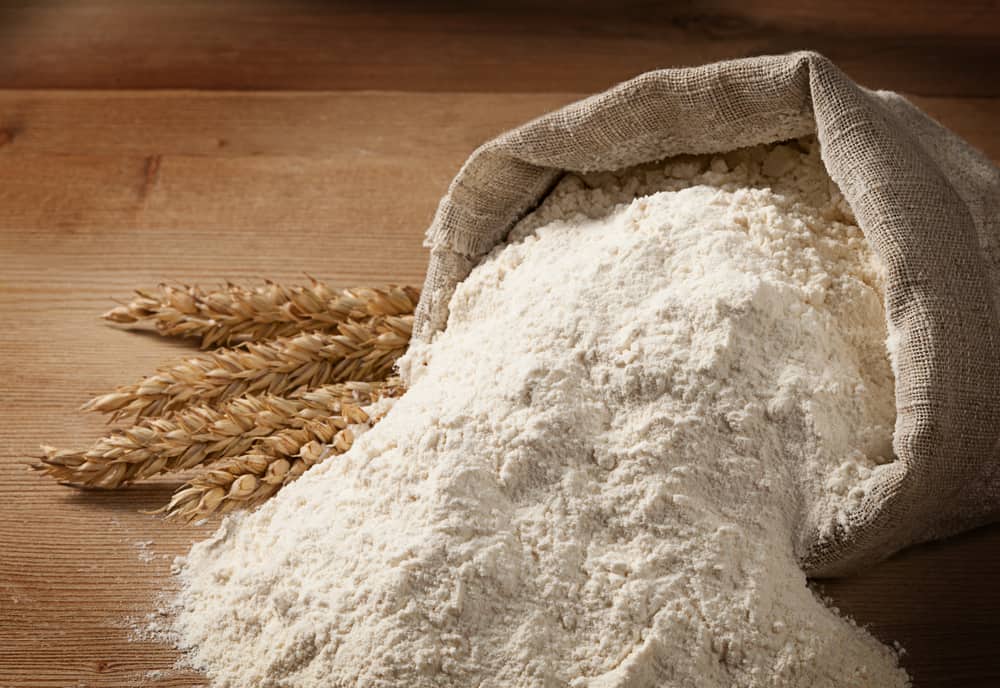
E.Coli and other germs can be killed when exposed to temperatures of 160 Fahrenheit or more, so your favorite pizza should definitely be safe. However, handling the raw dough should be done correctly and carefully. Always be sure to wash your hands before you do anything in terms of your food.
23. No Substitutions, Unless You’re Allergic
This advice came from chef Christorpher Faulkner. He explained that if you ask for substitutions, you’re potentially compromising the quality of the dish. In Faulkner’s words, “in a trusted restaurant, the chef knows what he is doing, and a great marriage has been pre-arranged.”
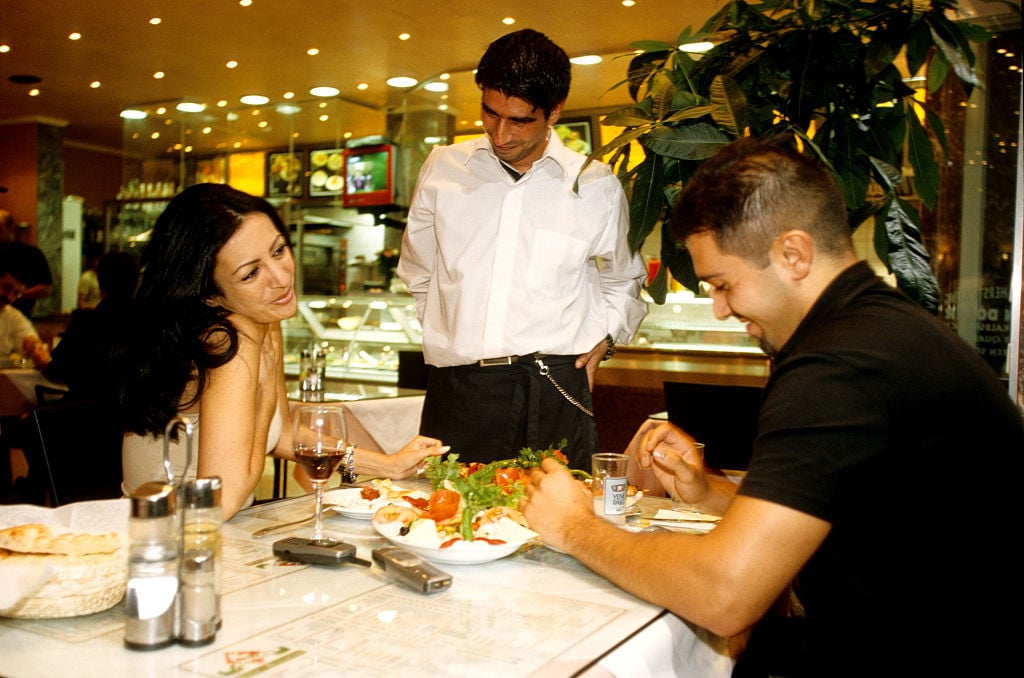
Yavuz Arslan/ullstein bild via Getty Images
Though you may love the ingredient you want to sub in, it can compromise the taste and texture of the dish. You may find you cannot fully enjoy your meal because you feel like there’s something wrong with it.
24. Be Adventurous!
Tanner Agar, owner, and CEO of Rye Mckinney, a famous restaurant in the United States, advises that people should always order foods they know they couldn’t make on their own. Explore dishes in restaurants that require a higher level of techniques and equipment. Not only is this more fun, but it also makes you feel like you got your money’s worth out of the meal.
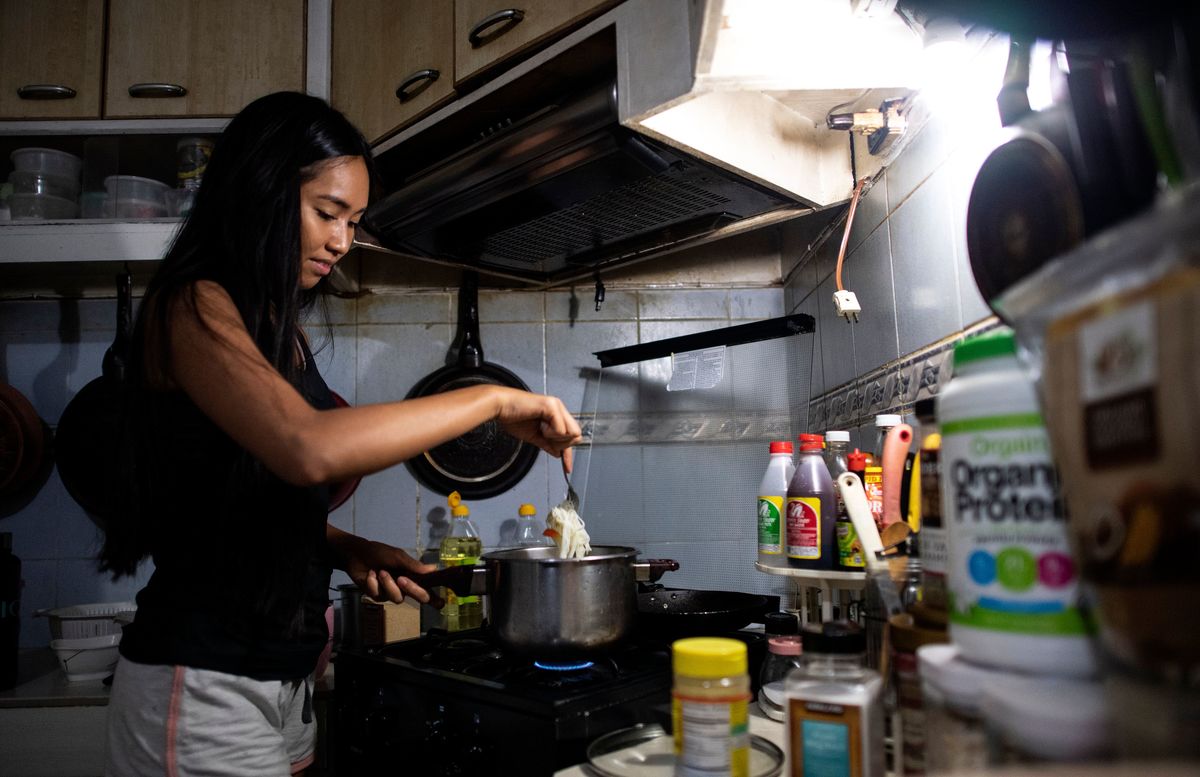
NOEL CELIS/AFP/Getty Images
He added that, “By ordering something you can make, you make it impossible to have that thrill of a surprise that a great, unexpected dish can create.” There are so many amazing dishes all around the world. By ordering them more often, you’ll be able to widen your horizons.
25. Luxury Food Items Are Blah!
White truffles and caviar are just some of the food items in restaurants that appeal to luxurious tastes. Restaurants price them higher than they’re worth, but because they’re rarely prepared, it’s often the case that the chefs are less skilled in handling these prized ingredients.
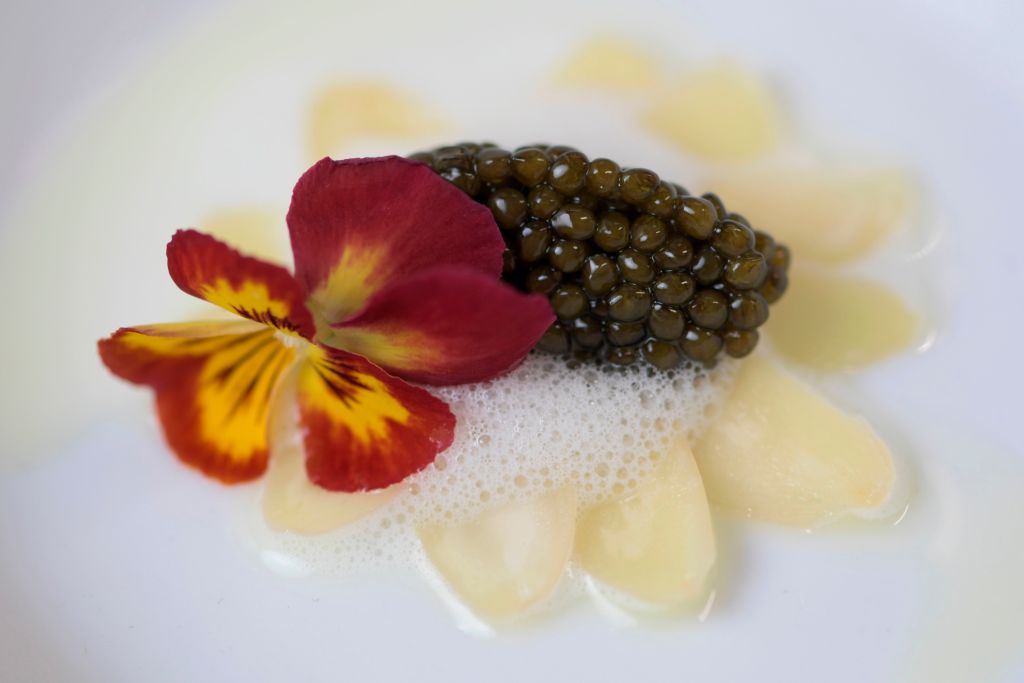
MIGUEL MEDINA/AFP/Getty Images
While it seems to be a once-in-a-lifetime experience to eat something luxurious, you may be surprised that these fancy treats can be prepared at home. With the right amount of patience and a good background in cooking, you can create these luxurious dishes on your own. You may spend a little more, but at least you won’t be paying for a tiny serving.
26. Happy Valentine’s Day!
Compared to other holidays, Valentine’s Day is the most likely to cause restaurants to be overcrowded, resulting in a lot of orders. Moreover, most of the tables are occupied by couples, so the family tables and banquet tables are often empty.

Jeffrey Greenberg/Education Images/Universal Images Group via Getty Images
With so many people making so many demands on the kitchen, it might be worth arranging with your significant other to celebrate the romantic holiday on a different day. That way, you won’t have to deal with the crowds.
27. Steak Well Done Is a No-No for Chefs
Most chefs agree that customers who order a steak well-done are basically deleting the flavor from the meat. One chef on Reddit explained that with well-done steak, “The care and dedication to a craft have been thrown out the window.” The thorough care for the steak may be put to waste if you order your steak this way.
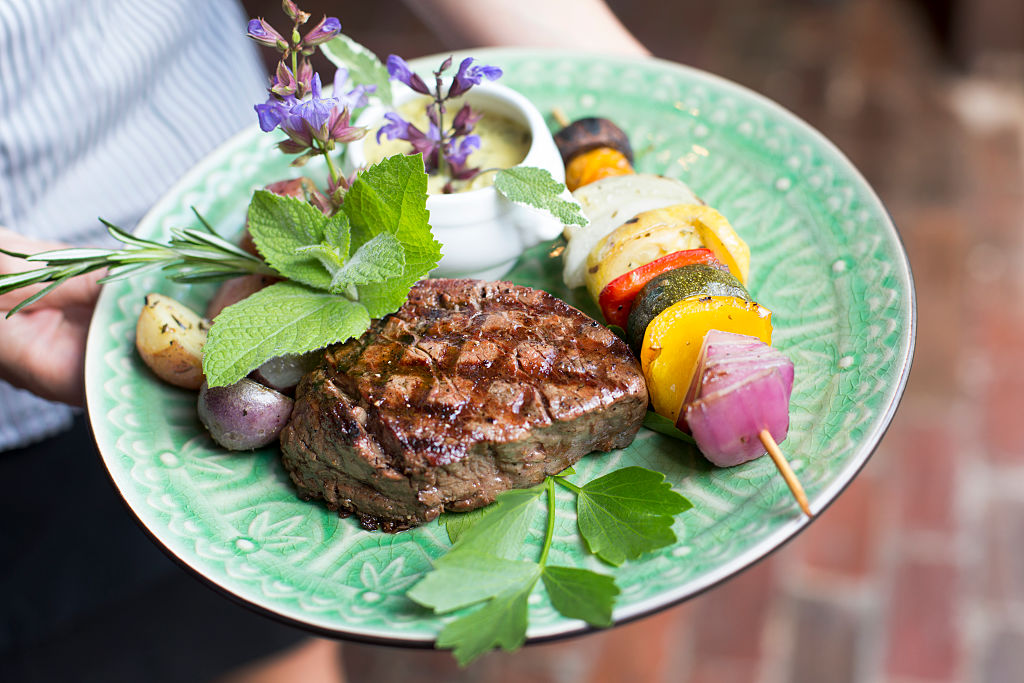
Lisa Wiltse/Corbis via Getty Images
When the steak is processed to medium or medium-rare, the tasty juice has not evaporated yet, and the texture can be chewed well and cut easily. Some diners go for well-done because of safety purposes. We understand the reason, but it’s better to go to a trusted place and order your steak medium or medium-rare.
28. Diet Cocktails Are Not Diet-Friendly
There was a study conducted by the Northern Kentucky University in 2015 wherein they found that those who consumed diet cocktails had a 25% higher blood alcohol concentration (BAC) compared to those who drank a non-diet beverage.

Chris Jackson/Getty Images for Cointreau
With more alcohol flooding your system, it is most likely that you will order additional food, and perhaps even a dessert, after a couple of diet cocktails. This is, in fact, a method some restaurants use to get people to order more.
29. Value Meals Equal More Calories
Most fast food places offer a lower price when it comes to value meals. That’s the main dish, side dish, and beverage all packaged together, so you don’t have to pay for them individually. Unfortunately, the Journal of Nutrition published a study that found people’s blood pressure rose after eating value meals.
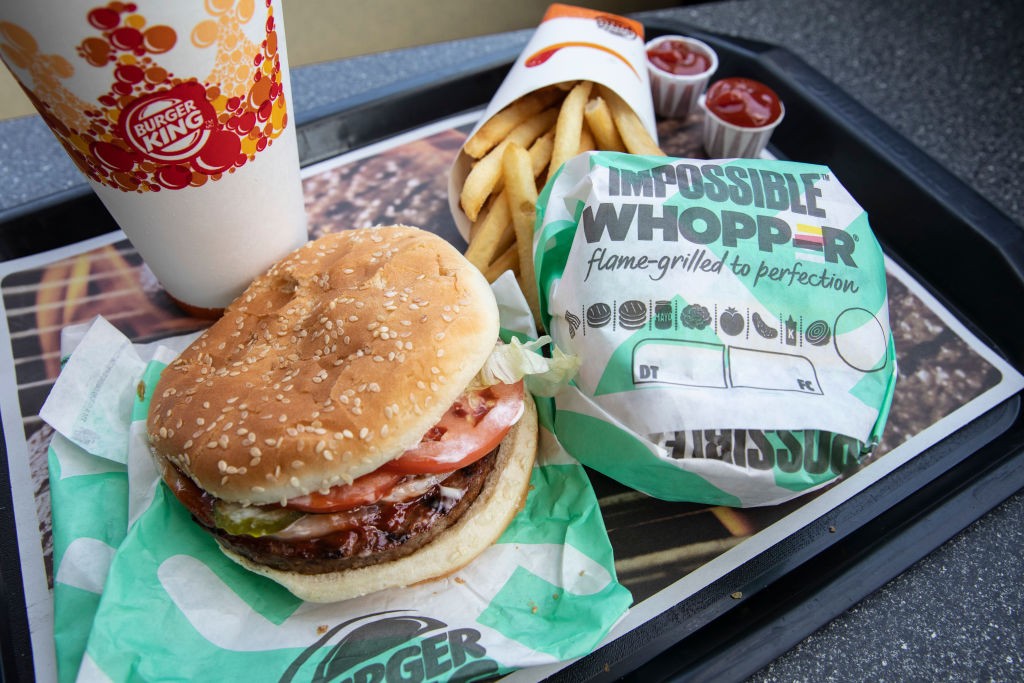
Drew Angerer/Getty Images
The problem is, value meals encourage you to consume more than you would if you simply selected the individual items you wanted. It’s good to have some days of enjoying unhealthy food, but healthy choices generally equate to a longer life, so balance is essential.
30. Water With Lemon
According to a study by the Journal of Environmental Health, 70% of the lemons in restaurants tested positive for bacteria. This is because the waiters are usually not taking necessary care and precautions, like using tongs and gloves to grab the lemon wedges. Yikes.
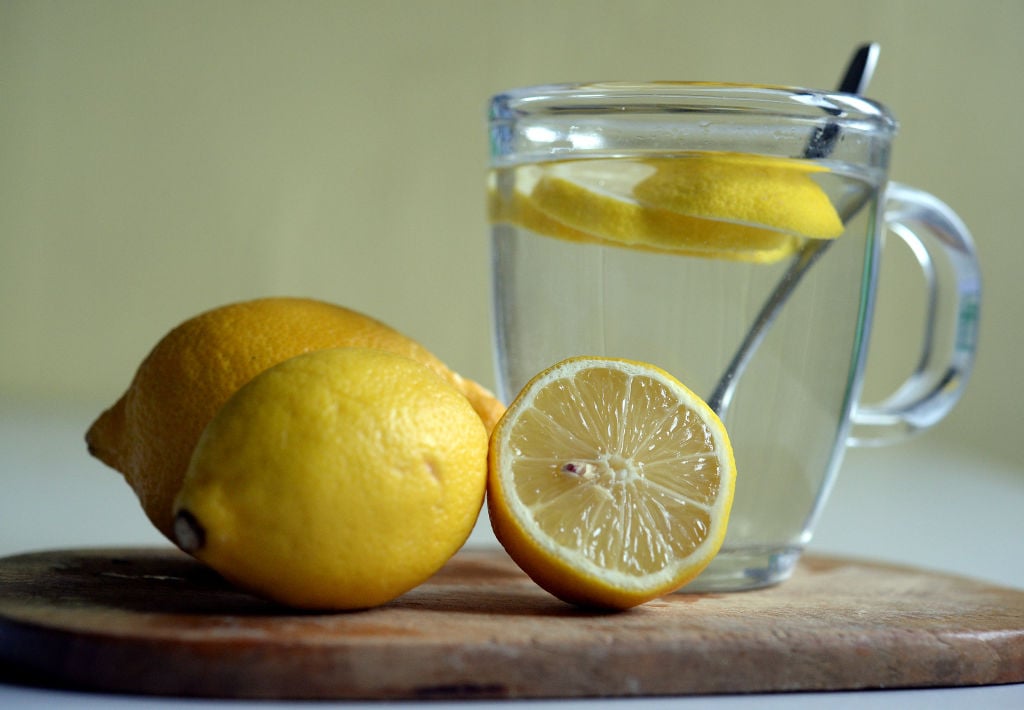
Susann Prautsch/picture alliance via Getty Images
Lemons are often managed with bare hands, even while they are sliced. This is hardly hygienic. Bartenders who are up at the counter might take every precaution possible because they are being watched, but who knows what goes on with drinks prepared out in the kitchen.
31. Drink Garnishes = Yummy but Yucky!
Bartenders are skilled at preparing mixes and beverages, and since they work out in the open, we tend to assume that they maintain high service standards. How sure can you be, though, that the fruit garnishes on your drink are sanitized?
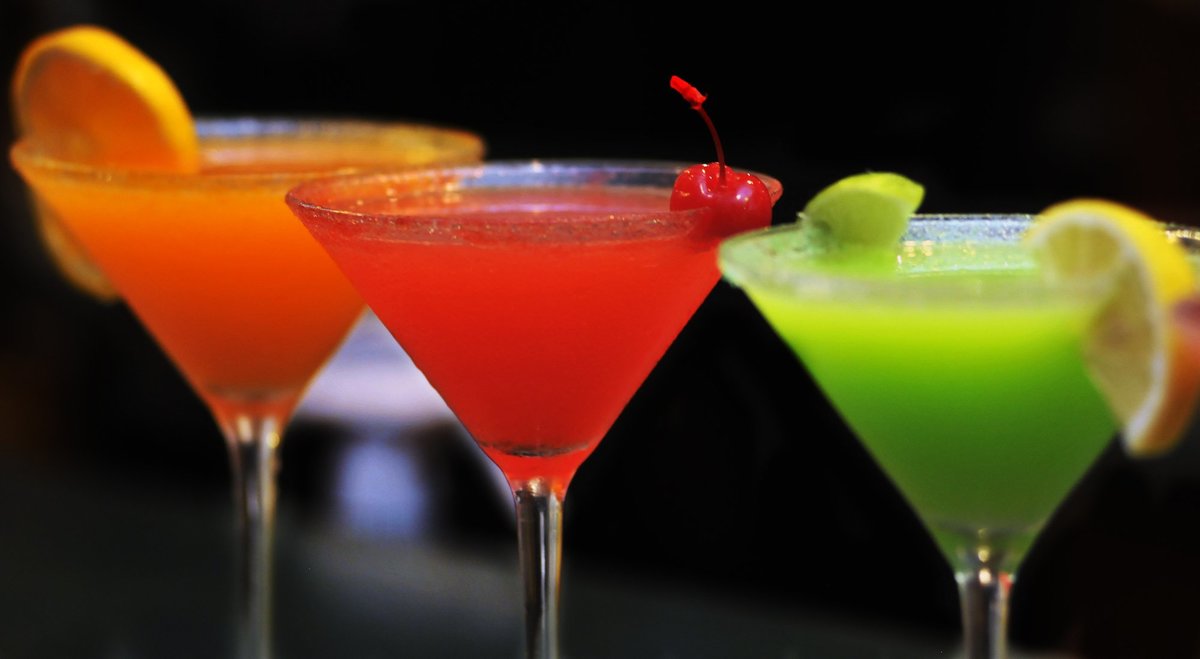
Gabe Souza/Portland Press Herald via Getty Images
Remember that study we mentioned in the last slide? Many of those contaminated lemons were found behind the bar. If a bartender is handling garnishes with their bare hands and also handling cash, that’s a recipe for bacterial disaster! So, it may be best to avoid fruit garnishes next time you go for a drink.
32. Pasta Is a Crowd Favorite
Pasta is a popular offering, especially in all-you-can-eat restaurants. However, the United States Department of Agriculture recommends six to eight ounces of grains in an entire day. As you can imagine, it’s pretty easy to go well over this recommendation at a buffet.
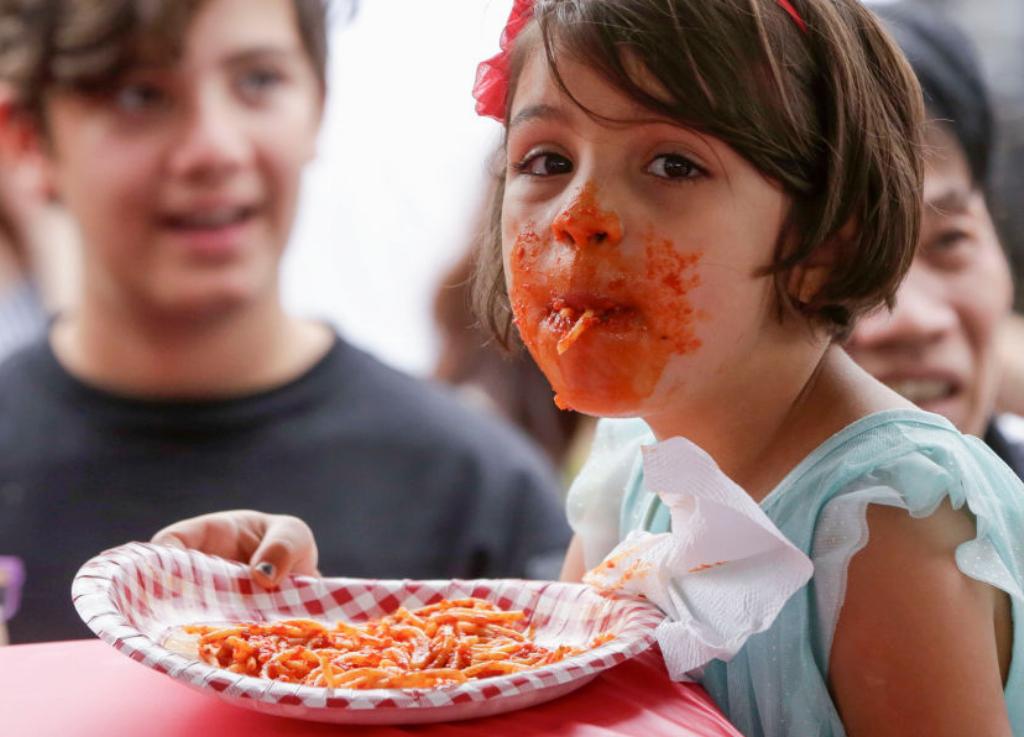
Liang Sen/Xinhua via Getty
Some restaurants offer big portions of pasta, and in America, you’ll almost always exceed the recommended intake of grains if you order this dish. The workaround? Ask for a half portion. You’ll be surprised at how filling it is. Plus, you save money on your meal!
33. Free Refills
The American Heart Association suggests not exceeding 37.5 grams of added sugar per day. This may sound like a lot, but did you know that in just one can of soda, there can be an entire day’s worth of sugar. Yup! In fact, many sodas have more than 37.5 grams of added sugar.
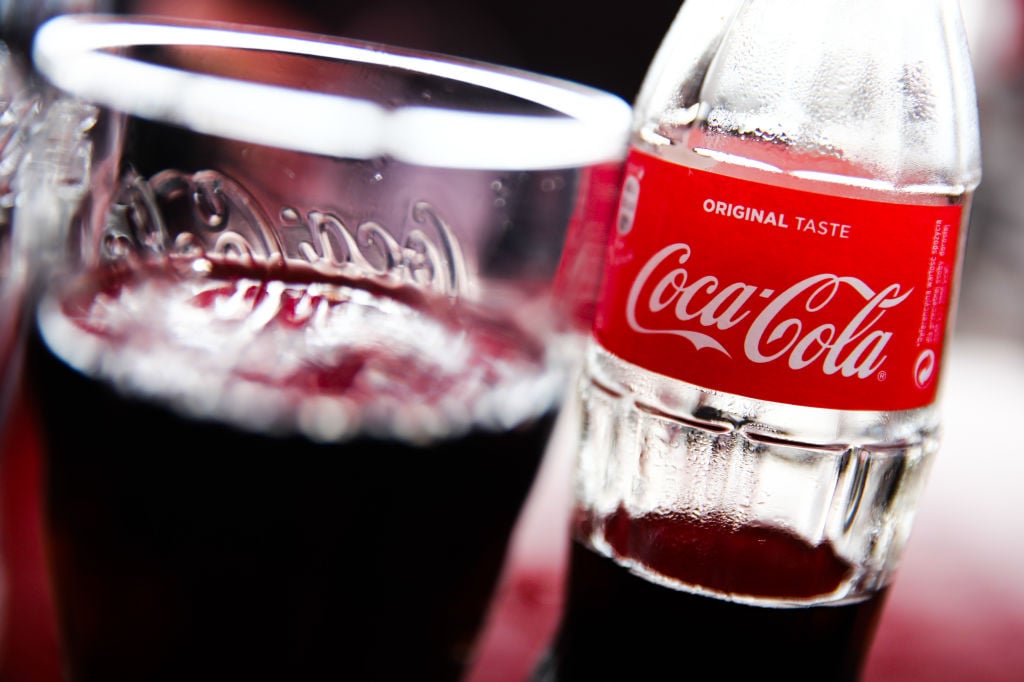
Jakub Porzycki/NurPhoto via Getty Images
We know how tempting it is to drink sugary drinks, especially during hot summer days, and extra especially if there are free refills. To avoid that unhealthy lifestyle, opt for plain soda water instead. It gives you the same refreshing mouthfeel without the calories.
34. Salsa and Chips
Many restaurants offer bottomless baskets of chips and salsa in place of the breadbasket. Though they may be considered appetizers, they can ruin your appetite. Livestrong shared that ten tortilla chips have 150 calories, while salsa has about ten calories per spoonful. You might be full before you eat your main dish!
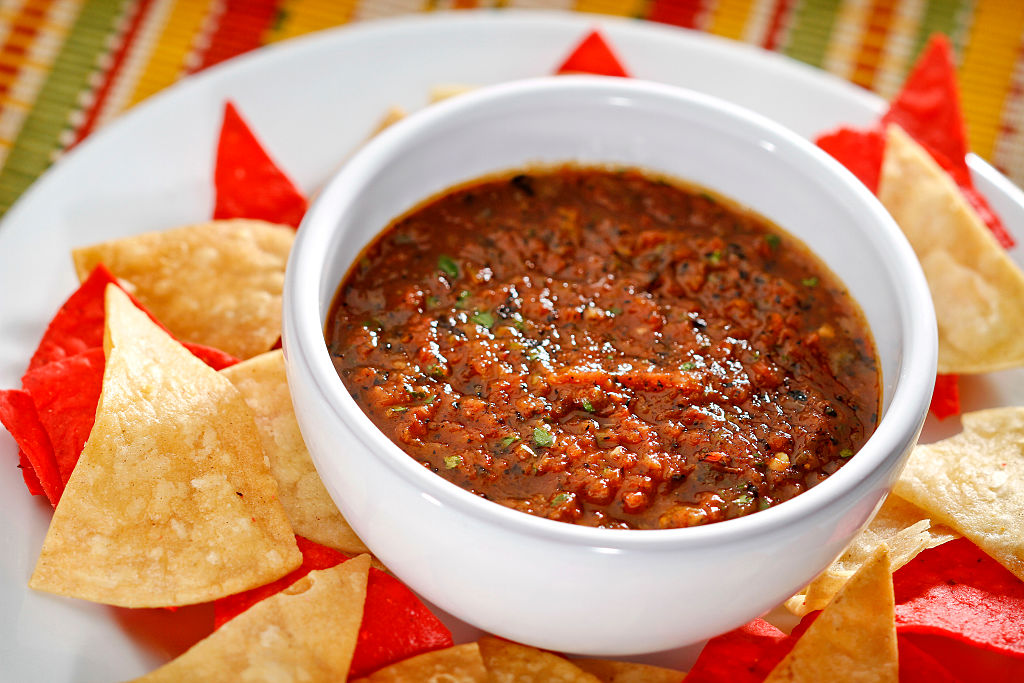
Ricardo DeAratanha/Los Angeles Times via Getty Images
Aside from that, the salsa and chips combo is not as healthy as you think. Many people don’t count this appetizer when estimating their daily food intake. So, if you’re wondering why you aren’t getting fitter, this could be the hidden cause.
35. Piña Colada Is a Woman’s Best Friend
According to the National Institute of Health, it is not recommended for a woman to consume more than two drinks per day. This may sound misogynistic, but it’s all to do with women’s health. According to their cocktail content calculator, one piña colada is equal to two drinks.
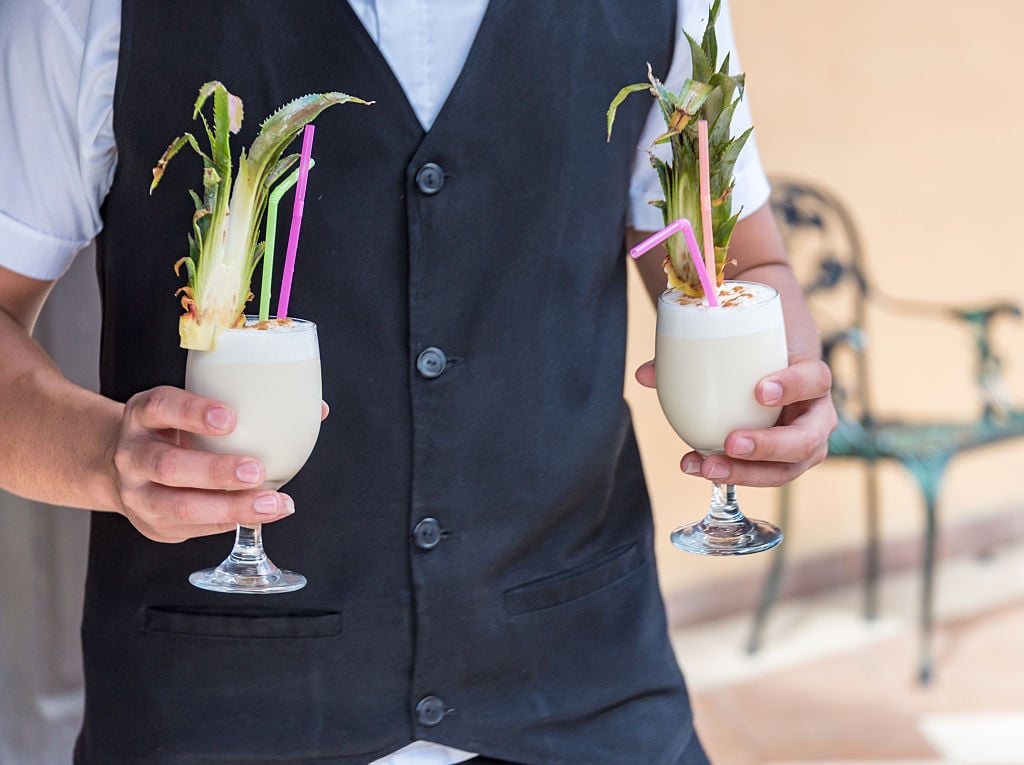
Roberto Machado Noa/LightRocket via Getty Images
While it’s an easy way to count your drinks, the sugar content in this one glass is about the same as a soda but double the calories due to the alcohol content. This is starting to sound like something that should be a rare treat!
36. Sharks as Food?
Research issued by Science Daily found high levels of mercury, arsenic, and lead in the blood of great white sharks located in South Africa. Those heavy metals are very much toxic to the human body. However, these sharks aren’t the only toxic ones.
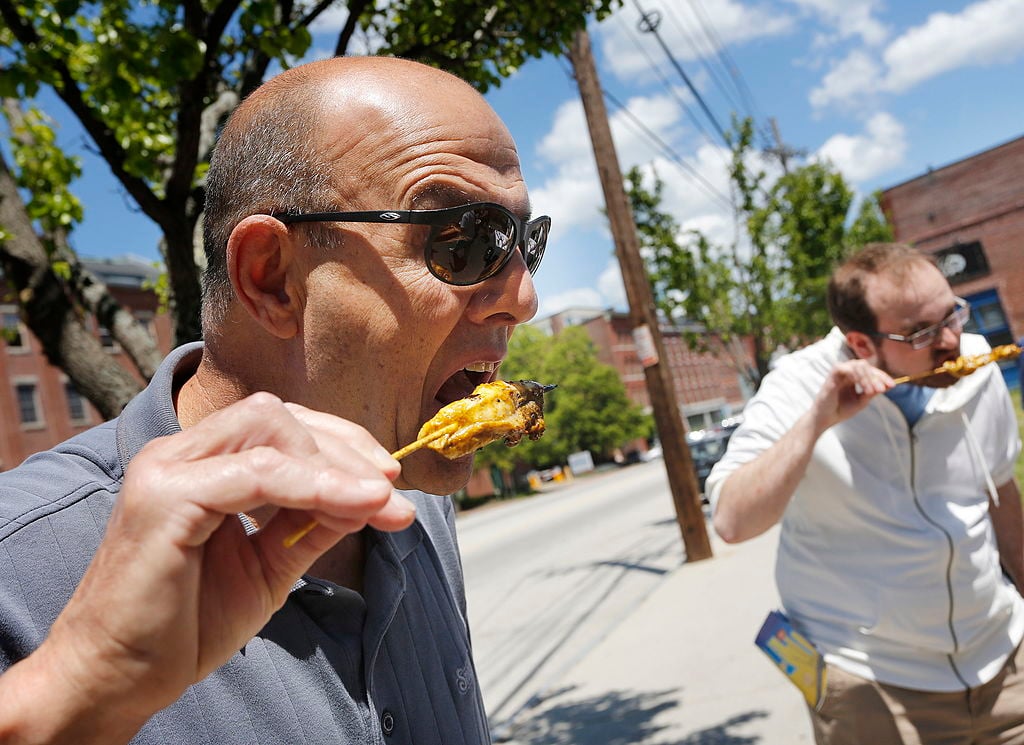
Derek Davis/Portland Portland Press Herald via Getty Images
Neil Hammerschlag, a marine ecologist and professor, said that “As top predators, sharks bio-accumulate toxins in their tissues via the food web from the prey they eat.” These top predators tend to have the highest accumulation of heavy metals in their bodies, making them a poor food choice for humans.
37. Cheesy Fries Have a Salty Problem
Throughout the years, we’ve seen the rise and fall of a lot of inventions connected with French fries. There are different flavors and even shapes. Many restaurants include cheese fries as an appetizer on their menus. Aside from the calories that you will acquire from cheese and fries, please also take note of the dangers surrounding the high salt content.
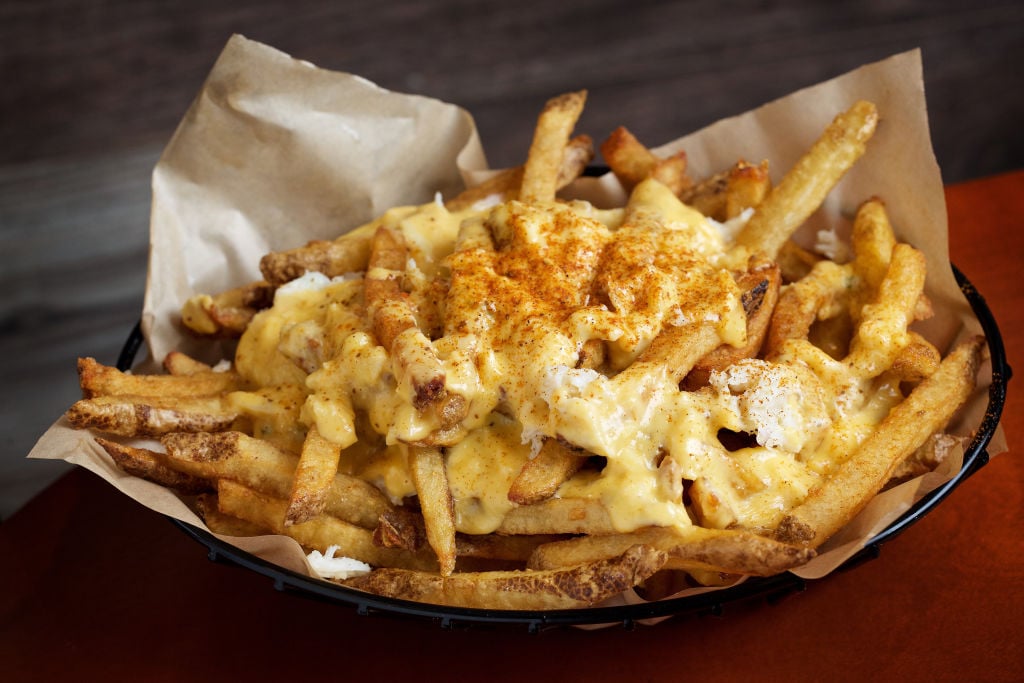
Deb Lindsey for The Washington Post via Getty Images
The CSPI disclosed that this creation has a dangerous effect as it contains 5,000 milligrams of salt, which is more than three times the recommended daily amount.
38. Cream-Based Soup
Soups and salads are popular choices to order before the main dish. More often than not, restaurants offer them at discounted prices. While brothy soups are an effective way to restrict your appetite without having too many calories, creamy soup is the opposite.
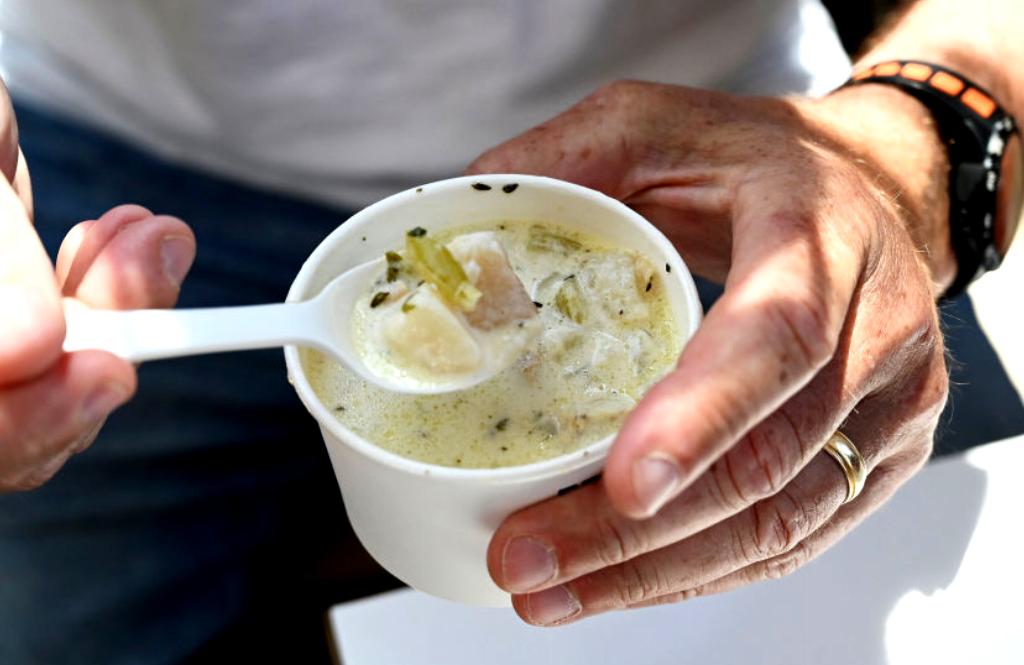
Shawn Patrick Ouellette/Portland Portland Press Herald via Getty Images
If you’re really craving a creamy soup, it’s much better to top it off with a salad or a side of vegetables rather than a heavy main dish. This way, you can at least have a balanced meal.
39. Good Morning, Breakfast!
Breakfast is the most important meal of the day. It offers a variety of foods such as toast, hash browns, pancakes, sausage, and the famous bacon and egg duo. There can be a lot of add-ons, including cheese, butter, jelly, maple syrup, chocolate syrup, and so much more.
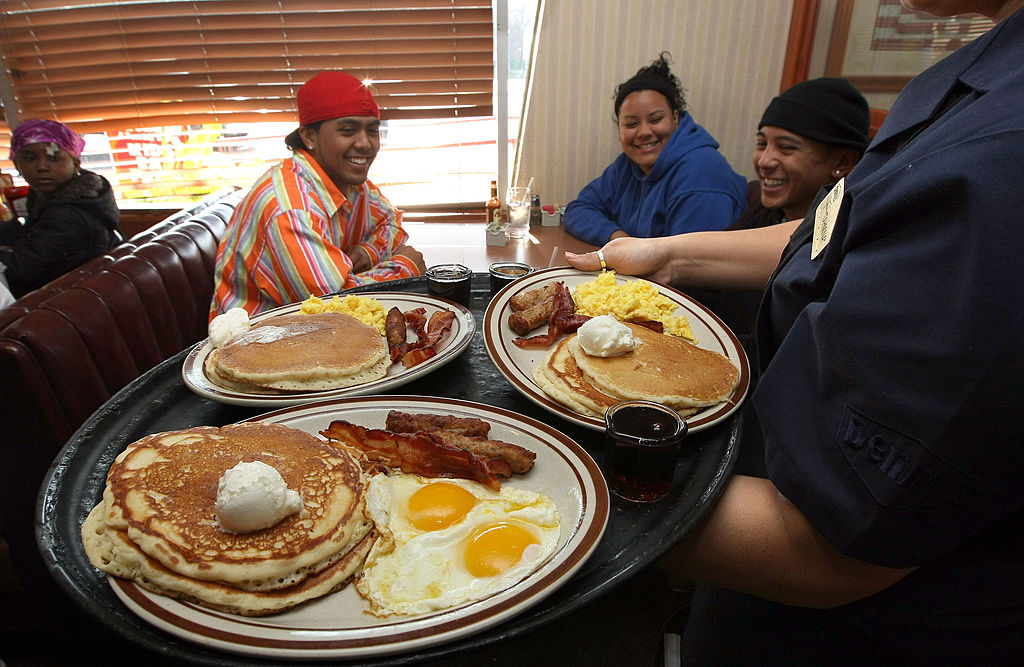
Justin Sullivan/Getty Images
It has been said that color is a simple way to evaluate your meal because foods that are naturally pigmented are high in minerals and vitamins. This gives you an easy trick for determining whether the food that you are eating is good for you or not. If your plate is colorful, you’re on the right track. If it looks like the image above, you may need to do some adjusting!
40. Buffalo Chicken Salad Is the Best… or Not?
Don’t be fooled by the word “salad” in this dish because, truth to be told, it is not healthy at all. With lots of fried meat and oily sauce, this salad packs around 74 grams of fat and over 3,000 grams of sodium.
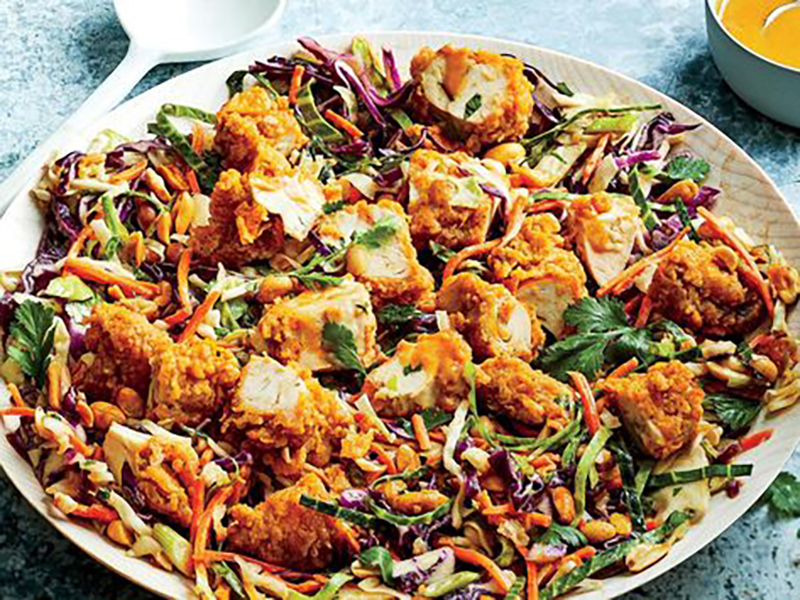
Tricia Salas/ Pinterest
Yes, you can see lettuce, carrots, cabbage, and other veggies in there. However, this doesn’t change the fact that the buffalo chicken salad is a nightmare for your body to digest. Of course, there’s also no denying that it packs a lot of delicious flavor!
